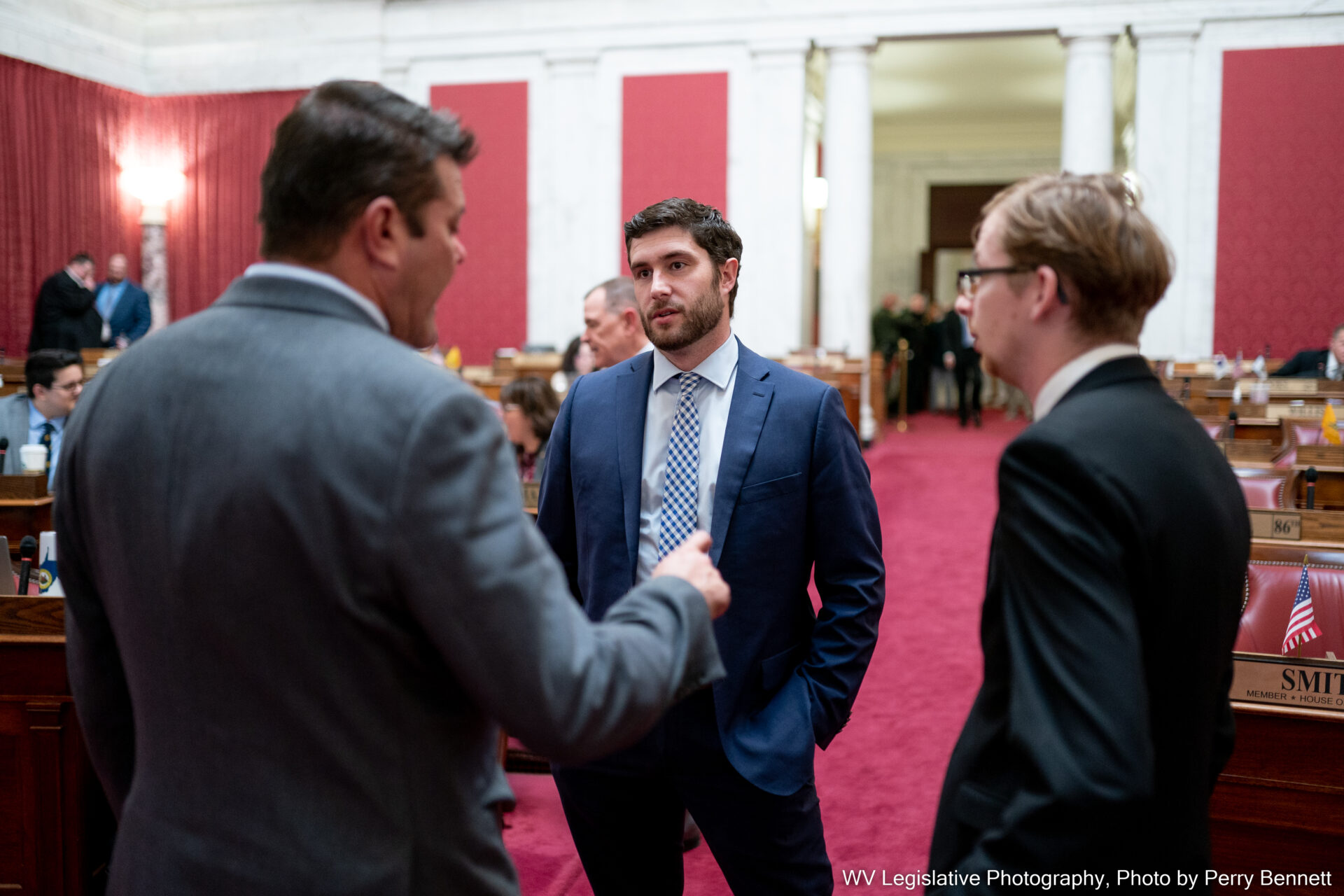Twenty-five West Virginia House of Delegates members and seven Senators make up West Virginia’s Freedom Caucus.
Del. Geoff Foster, R-Putnam, chairs the group. Sen. Patricia Rucker, R-Berkeley is vice chair. Other Caucus leaders are Del. Bill Ridenour, R-Jefferson, and Del. Geno Chiarelli, R-Monongalia.
Foster said the Freedom Caucus will focus on smaller government, more tax cuts and protecting personal freedoms, yet it opposes any abortions and trans health care.
“The right to murder a child is not something that the Freedom Caucus would support,’ Foster said. “Republicans in West Virginia seem to be far to the right of what’s getting passed and what the public believes, therefore, to the right of what the actual leadership is passing.”
Foster said a majority of citizens in his 20th district objected to many Republican-supported COVID-19 regulations.
“Whenever the governor shut down the state and said people couldn’t have Thanksgiving dinner and all the restaurants had to be shut down,” Foster said. “I got hundreds of phone calls — about half saying we need to do something about it, we need to keep the state open. People weren’t getting what they wanted out of the representation.”
Foster said what he calls “reckless’ spending bills passed by more centrist Republicans do not align with caucus members’ constituencies. He said it’s “reckless” to give incentives to out-of-state companies like Nucor and Form Energy, or $45 million to a Marshall University Cybersecurity Institute. He said the state’s new business efforts won’t produce expected employment.
“That economic development spending, in many cases, doesn’t translate down to the jobs that it promises,” Foster said. “I believe that getting rid of the burdensome red tape is the way to get businesses to come here, not just taking West Virginia tax dollars and giving it to an out-of-state business.”
The state’s conservative West Virginia Chamber of Commerce gave Foster and other Freedom Caucus leaders middle of the road scores in assessing votes on business-related issues and leadership qualities. Foster chuckled in considering the Chamber “conservative.”
“I don’t believe that the Chamber of Commerce is conservative, or has the same issues in mind,” Foster said. “I believe I supported 80 percent of the bills that they suggested were good bills, but then I got somewhere around a 50 percent rating. It’s a very odd rating system that they have.”
Foster said the Freedom Caucus will get involved in primary elections and have its own scorecard for how legislators vote on the bills they plan to present.
“That’s going to be public information,” he said. “Also, we will send it out to the delegates, so they know where they’re falling. There’s going to be prior announcements of bills and issues that are supported by the Freedom Caucus.”
Foster said for many issues, there’s no middle ground, no compromise.
“We will vote for what’s best for the people,” Foster said, “What West Virginians want is people that are willing to fight for the issues that they’re impressing on us that are important to them.”
